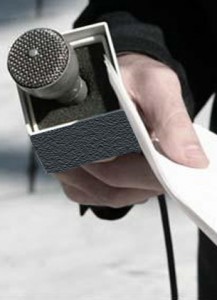 To call this a media failure would be an understatement: The story of the woman scalded by Starbucks tea was reported in dozens of news venues, both online and traditional. And when I wrote about it yesterday I noted that a little thing called “facts” just happened to be missing.
To call this a media failure would be an understatement: The story of the woman scalded by Starbucks tea was reported in dozens of news venues, both online and traditional. And when I wrote about it yesterday I noted that a little thing called “facts” just happened to be missing.
And do you know why the facts were missing? Because there weren’t any interviews with the complainant or her attorney.
When I say no interviews, I mean none. Nada. Zip. Bupkus. The first interview with the victim’s lawyer regarding this suit, which went international because this was a Reuters story, was the one I did yesterday. How pathetic is that?
This posting isn’t really about the suit, some of whose details you can now read at my prior post linked above; it’s about media incompetence.
According to Elise Langsam, attorney for the burned victim, she received a phone call from Reuters, but she wasn’t available when the call came in. And before she even had a chance to get back to the reporter to discuss the actual case, it was already published.
The writer on the piece is identified as Jonathan Stempel and the editor is Bernard Orr. Apparently neither of them thought the facts would be important to their fast-moving story of a woman being burned. Had they actually given a damn about their story, they would have learned that the cup’s top popped off because it wasn’t put on right by Starbucks, and that the scald on her arm left her hospitalized for five days. Instead, they relied on a bare bones Complaint that put Starbucks on notice of the suit, but doesn’t get into detail.
Reuters simply published a snippet from a modest legal filing, and then regurgitated the story of Stella Liebeck and McDonald’s coffee. As if all burn cases from chain restaurants are exactly the same. That’s journalism today? This is all of the meat and potatoes from their version of the story:
Starbucks Corp has been sued by a customer who allegedly suffered second-degree burns after being served tea that was too hot.
According to the complaint, the plaintiff Zeynep Inanli was served tea that was “unreasonably hot, in containers which were not safe,” at a Starbucks store at 685 Third Avenue in Manhattan.
As a result of Starbucks’ negligence, the plaintiff suffered “great physical pain and mental anguish,” including the burns, the complaint said.
You want to know what their excuse was for not finding out the actual facts? Here it is:
Starbucks, based in Seattle, did not immediately return requests for comment. The plaintiff’s lawyer did not immediately return a call for comment.
Clearly, this was a critical, time-sensitive story that had to be published immediately. They must have been sitting there terrified that they might get out-scooped, while an environmental disaster looms in the waters to our south, while we fight two wars, while the world waits to see if Greece will go belly-up and while our economy struggles.
Does Reuters actually give a damn about what they produce, even when their writers don’t? Or is it just enough that they produce media filler, and leave actual journalism to others?
When I saw the piece I couldn’t believe such miserably lazy reporting passed for news, but when I Googled it I was stunned at the number of major news organizations that decided to run with it. What follows now are some of the media victims of the Reuters incompetence, both here and abroad. But they share the blame for publishing the Reuters piece without first reading it to see if it was worth anything. The fact that facts were missing should have been evident to even a casual observer:
- WPIX in New York, where reporter Lesa Mateo actually went out to interview people on the street about the case, even though both she and her interview subjects were clueless on the facts. You can view the stupidity at the link, unless they wise up and take it down;
- The Huffington Post, which used the moronic Mateo piece, and which has now garnered hundreds of comments from people forming strong opinions without knowing jack about the facts;
- Other guilty parties: CBS Business News; CNN Money; Fox Business; The Times of India; New York Magazine; The Telegraph (U.K.)
Sometimes people wonder if bloggers should be called journalists. But this blogger wonders if certain journalists should be called journalists.
File this under epic media fail.


